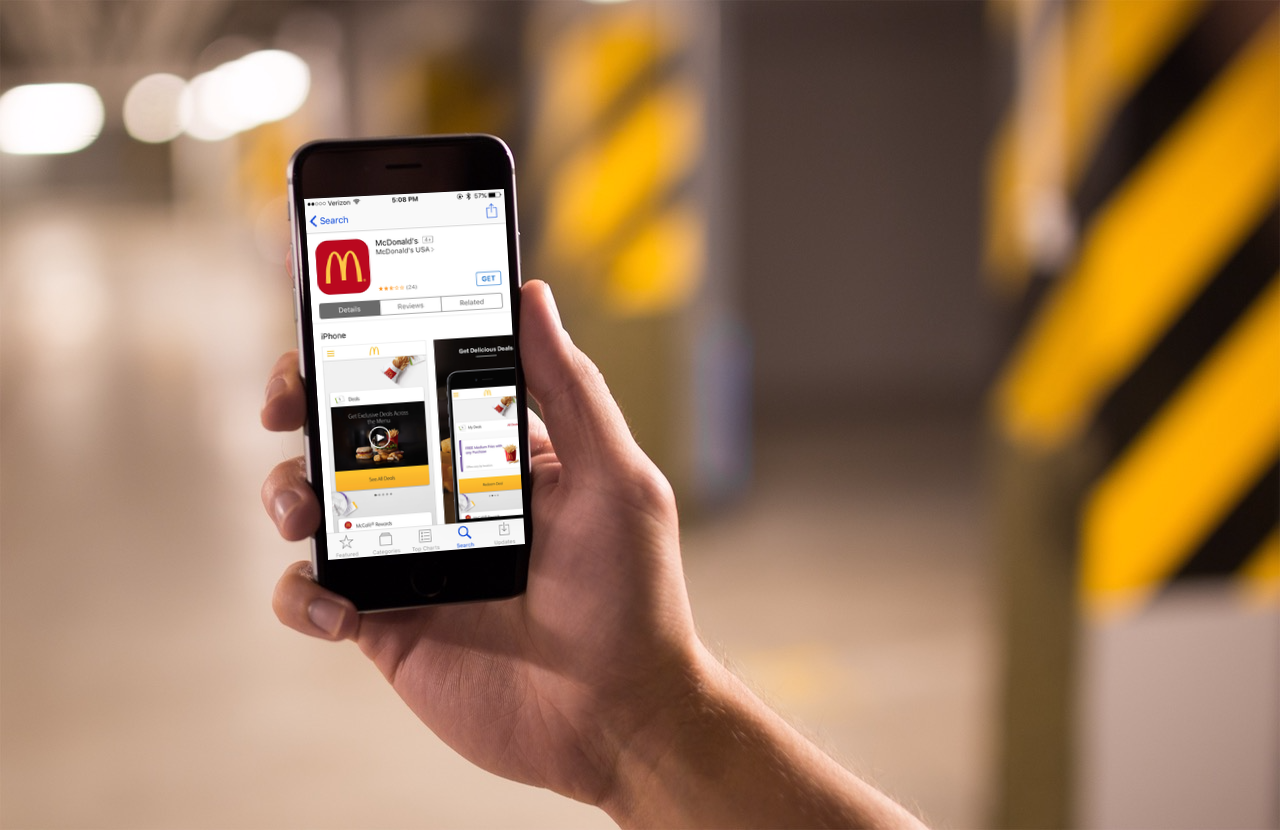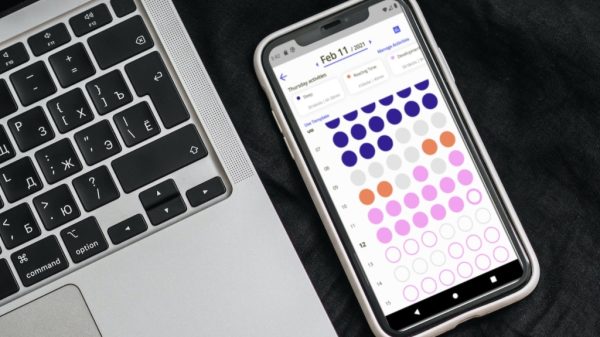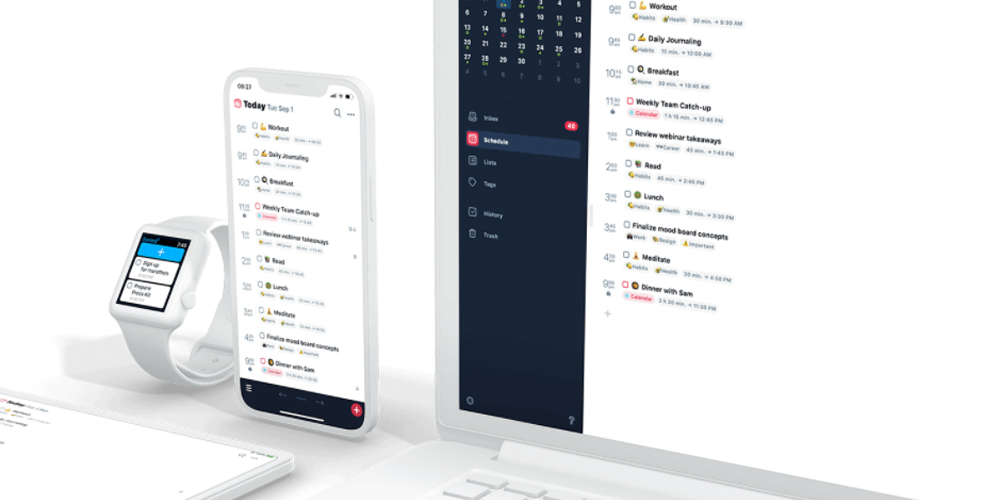McDonald’s app
Customer loyalty programs are hardly anything novel, and many rely on information you willingly share to mine data about your browsing and shopping habits to then refine your customer experience. What is new, then?
![]()
McDonald’s is jumping into the fray.
Self-serve
According to reporting by Samantha Bomkamp at the Chicago Tribune, a nationwide mobile ordering system will be in place by the end of the year at the fast-food giant which aims to customize your dining experience based on your choices. Faced with a continued pattern of declining customer traffic, this represents a large investment of both time and attention towards becoming competitive in digital innovation.
The plan is for McDonald’s to use the information to create a custom experience for diners, with the app providing personalized suggestions and coupons based on your previous ordering history.
They’ve had a smartphone app for the past few years, but there’s been no personalization involved, nor has it provided what they’ve been testing in international markets for some time: the ability to both order and pay through the app.
Not just for giggles
The ability to both order and pay through the app isn’t just a nicety. Their research has found that per customer sales have risen by an average of 35 percent in Japan.
Silvia Lagnado, McDonald’s Global Chief Marketing Officer, stated to the Chicago Tribune that customers return more frequently based on the ease of ordering through the app, and when customers take the app’s recommendations on adding other items to their order, those items are saved and then suggested to the customer on their next visit, driving spending higher.
In Singapore, a recently completed trial had McDonald’s using the app to use Google ads in places with lighter customer traffic, in an attempt to drive both in store sales and delivery orders.
Mostly unchartered waters
David Pierpont, an executive vice president at marketing firm Ansira, speaking to the Chicago Tribune, said that the ability to quickly and appropriately use data to improve the customer experience is largely unexplored territory with huge benefits.
“Consumers are willing to share data if the benefits are right,” he said. “I think you’re going to see more and more. [Millenials] say they don’t want to give everything away, but they’re on Facebook, they’re on Google…”
Measuring the difference
To track the impact of their digital efforts, McDonald’s is working with a new ad agency, We Are Unlimited, a spinoff of Omnicom, which recently won all of the national advertising business for the fast-food giant.
As a part of that work, they’re partnering with Facebook to track the effectiveness of their ad spend.
They can do that by taking Facebook’s location-tracking information and translating that to time it takes from when a customer sees a McDonald’s ad on Facebook and then walks into a restaurant. With approximately 90 percent of Facebook users utilizing location tracking services, this allows McDonald’s to have a relatively wide swath of data on the buying habits of potential customers.
Not without faults
Sometimes those buying habits are counter-intuitive. As we reported before, Starbucks had fantastic response to the unveiling of its app, which also allowed customers to place and pay for orders before ever entering the stores.
That convenience, however, also led to a reduction in impulse purchases, and thus revenue, leaving the coffee giant scratching its collective head.
When it comes to the bottom line, how much innovation and convenience can one reasonably afford?
Two birds, one stone
Some have posited that McDonald’s is really attempting to solve two problems at once with the roll out of the app: increasing store traffic and revenue and potentially using that data to decrease expenditures, such as labor costs. While McDonald’s is not publicly focusing on other avenues of use for granular data centered around customer purchasing habits, it does stand to reason that data analysis might also highlight menu items that are less popular, and can therefore be eliminated, or identify times that fewer staff simply aren’t needed, no matter the offers made, this eliminating jobs or hours worked for employees.
Brian Nienhaus, CEO of We Are Unlimited, is placing the agency’s focus squarely on improving customer experience for the present, however.
“What does the modern customer want?”, said Nienhaus, speaking to the Chicago Tribune. “They want to use technology to enable their convenience. They want to be able to pay with it. All those things that are going on, I think we’re just tapping into them.”
#McDonaldsApp
Roger is a Staff Writer at The American Genius and holds two Master's degrees, one in Education Leadership and another in Leadership Studies. In his spare time away from researching leadership retention and communication styles, he loves to watch baseball, especially the Red Sox!











































